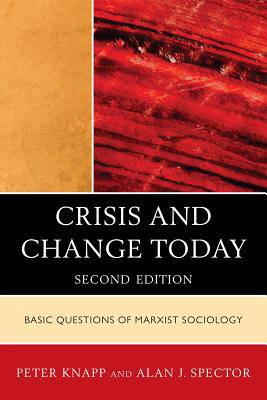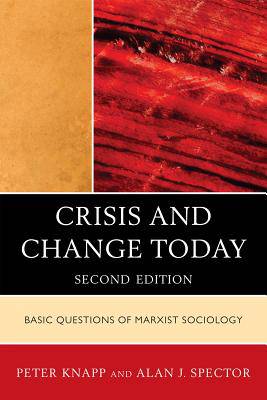
Bedankt voor het vertrouwen het afgelopen jaar! Om jou te bedanken bieden we GRATIS verzending (in België) aan op alles gedurende de hele maand januari.
- Afhalen na 1 uur in een winkel met voorraad
- In januari gratis thuislevering in België
- Ruim aanbod met 7 miljoen producten
Bedankt voor het vertrouwen het afgelopen jaar! Om jou te bedanken bieden we GRATIS verzending (in België) aan op alles gedurende de hele maand januari.
- Afhalen na 1 uur in een winkel met voorraad
- In januari gratis thuislevering in België
- Ruim aanbod met 7 miljoen producten
Zoeken
Crisis and Change Today
Basic Questions of Marxist Sociology
Peter Knapp, Alan Spector
Hardcover | Engels
€ 110,45
+ 220 punten
Uitvoering
Omschrijving
Crisis and Change Today provides a solid introduction to Marxist social theory. The work's unique voice is expressed in its Socratic-dialogic approach, structured around forty questions that students have about society and social change. Topics range from theories of history, economics, unemployment, racial oppression, the state, fascism, the collapse of the Soviet bloc, and points of convergence and difference between the dialectical approach and other approaches to social science. The content and tone of the work invites students to evaluate various traditional and current explanations of social institutions and social processes and encourages them to weigh the debates and investigate further. The first edition was very well received (Distinguished Scholarship Award of the Section on Marxist Sociology of the ASA), and the second edition has been thoroughly revised and updated to be relevant for students today. Though the first edition was written during the wake of the fall of the Berlin Wall and the collapse of the Soviet Union, the growing gap between the rich and the poor and the economic crisis have generated more interest in using Marxist analysis both as a tool to analyze and understand capitalism and the weaknesses of past Marxist praxis.
Specificaties
Betrokkenen
- Auteur(s):
- Uitgeverij:
Inhoud
- Aantal bladzijden:
- 387
- Taal:
- Engels
Eigenschappen
- Productcode (EAN):
- 9780742520431
- Verschijningsdatum:
- 16/01/2011
- Uitvoering:
- Hardcover
- Formaat:
- Genaaid
- Afmetingen:
- 162 mm x 239 mm
- Gewicht:
- 716 g

Alleen bij Standaard Boekhandel
+ 220 punten op je klantenkaart van Standaard Boekhandel
Beoordelingen
We publiceren alleen reviews die voldoen aan de voorwaarden voor reviews. Bekijk onze voorwaarden voor reviews.









